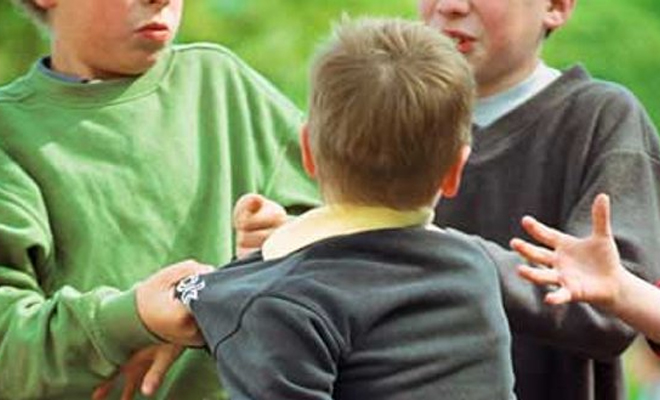
Is Your Child a Bully
Things at school have changed quite immensely from what it was back in the day when we all were school kids Child a Bully. Schools are not just mere institutions of knowledge anymore but they have formed a social structure of their own. Just like everywhere else, this place is also ruled by the bourgeoisie – the Elite class. Kids belonging to this class do not earn the right to their position due to their bank accounts but their seniority is based on the power of popularity and social support to influence others.
The second kind and not so popular kids at school are the regulars. These kids are normal happy individuals who do to believe in such disparity and social demarcation.
There is a lot of peer pressure that exists between these groups as one boss the other to conform and when they don’t, they are usually set as the outcasts, making them vulnerable to bullies. Although peer pressure may not be the only reason for bullying, it is one of the most prominent provoking factors. To discourage such behavior in schools and other settings for growing children, we must make sure that our children do not turn into a bully.
A bully can turn something like going to the bus stop or recess into a nightmare for kids. Bullying can leave deep emotional scars. And in extreme situations, it can involve violent threats, property damage, or someone getting seriously hurt. If your child is being bullied, you want to act to help stop it, if possible.
After years of research, psychologists around the world have revealed that there are certain traits that play as important factors in the personalities of bullies. These behavioral patterns are easily noticeable and can help you determine whether your child is a bully or not.
Analyze their behavior at home
Parents must closely observe the child’s behavior at home, especially their conversations with or about his friends. If your child is obsessed with popularity or social status, it is quite possible that he/she is either prone to be a bully or already bullying his/her peers. Apart from displays of aggression, stubbornness and other traits like answering back are common traits of children who might be bullying other children at home or at school.
Check the Attitude
If your child has friends who have a lot influence of them, you need to keep a close watch. A snobbish attitude towards their peers increases the likelihood that your Child a Bully.
Is your child happy?
If your child is unhappy at home, there is a chance that he might be taking out his anger elsewhere. If your child is anti social, it can play a role in his relationships at school. An anti social attitude tends to fuel bullying behavior as it is an act to fit within the system better by excursion of power.
How you can help prevent bullying
• Create a home environment that revolves around happiness and tolerance. Make sure that differences are celebrated and everyone feels valued just to be how they are.
• Encourage your child to stay away from bullies and not feel threatened by them. Make sure your child’s school has policies and procedures regarding bullying. If there isn’t any such plan, then ask the school administration to introduce some form of a bullying prevention program to be implemented.
• Whenever you see a child being bullied, intervene every time with the intention of discouraging the activity and reporting it so is resolved. Your support should be with the child who is bullied. Work with the school to provide your Child a Bully with effective protection against retaliation.
• Encourage bystanders to speak out against bullying behavior and to report it to adults. Spend time with your Child a Bully. All children need a daily, personal connection with parents, teachers and other caring adults to overcome such issues in their lives.

